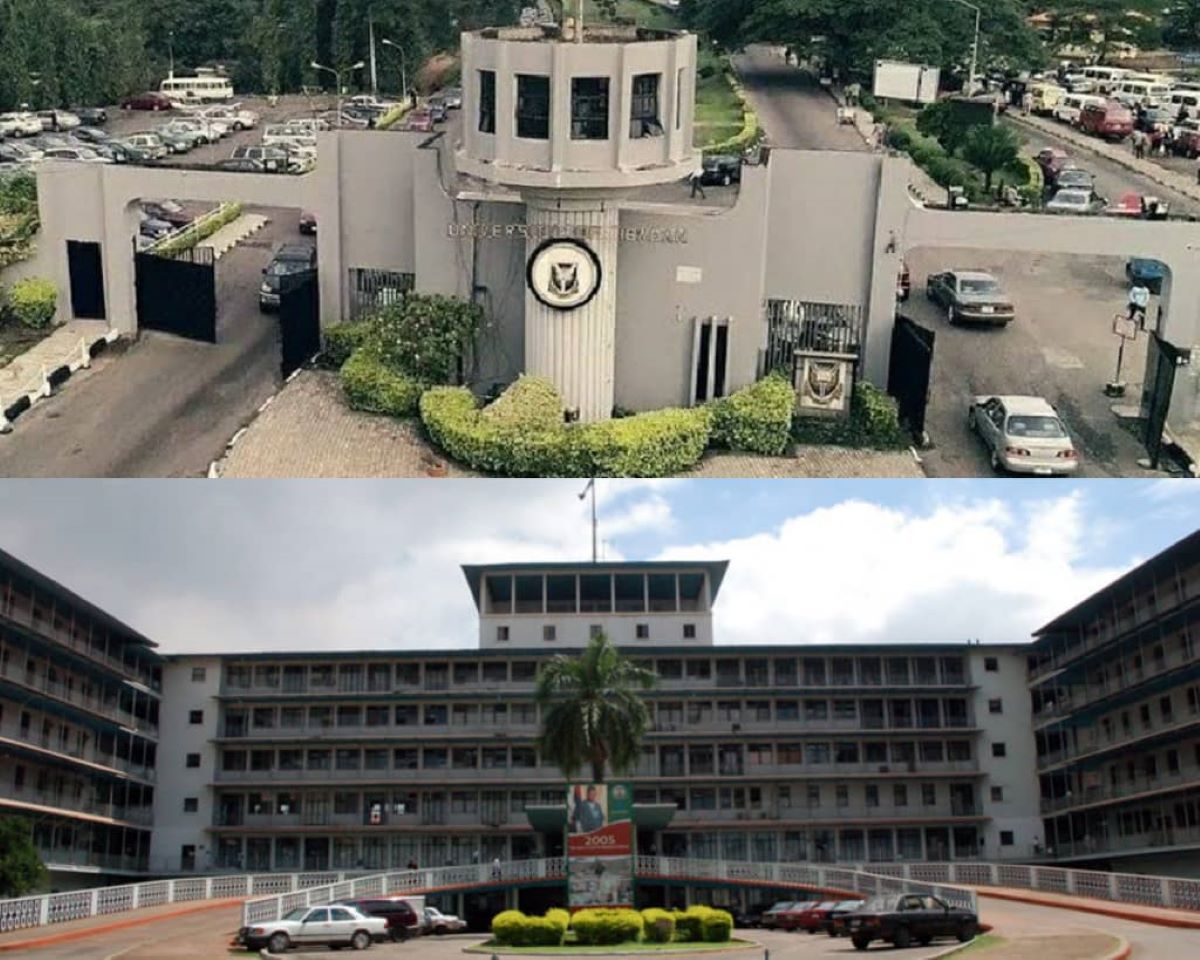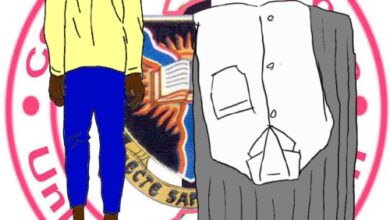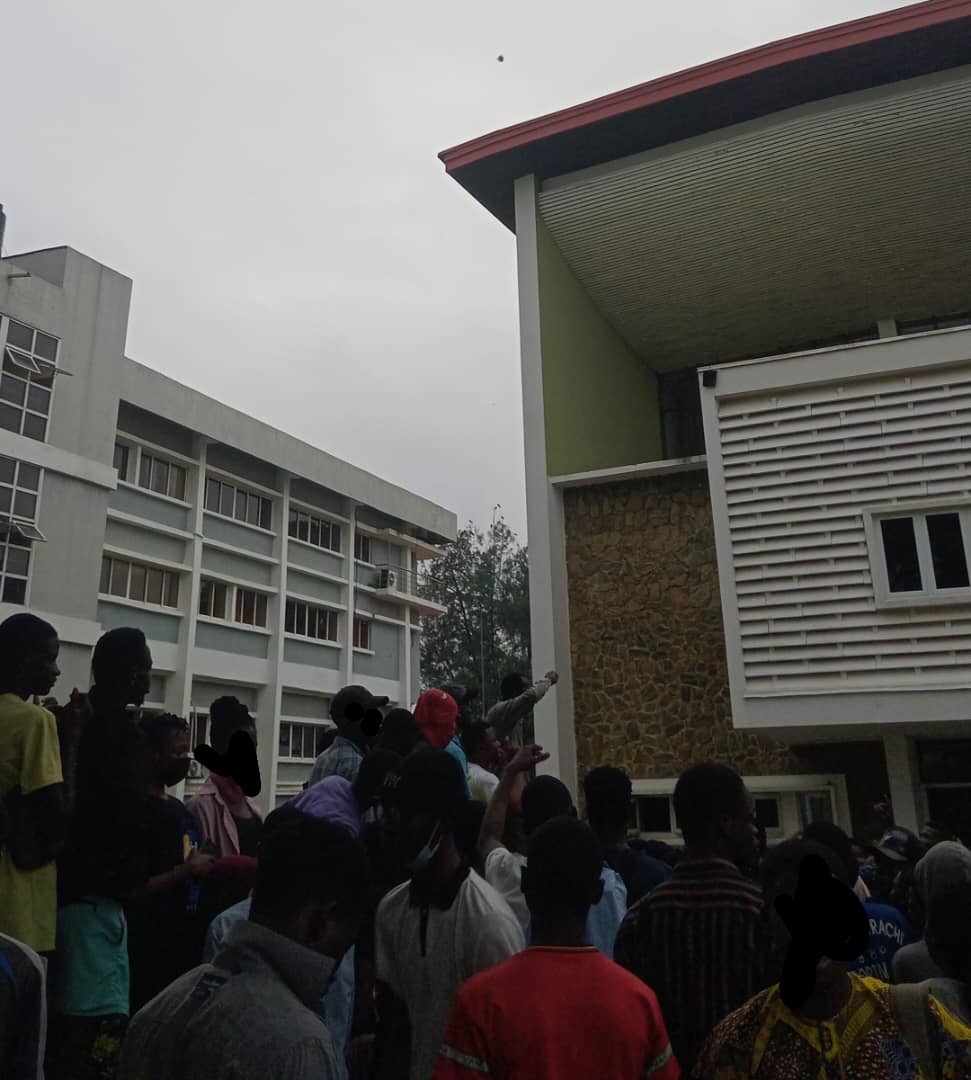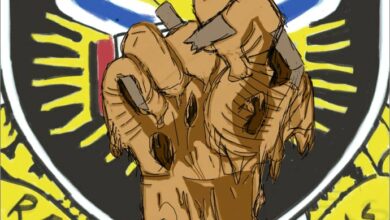(un)Happy Holidays!

The proposed two-week break is a rare respite in this line of work. Yes, work, because at many points, clinical training can feel like unpaid labour. Long nights slaving away at the Accident and Emergency Department, lonely climbs up and down UCH’s storied stairs fetching sample bottles, late frantic sessions with patients and relatives in anticipation of Consultant Ward Rounds the following morning. Even Baddo hails us as a part of the labour force while we tend to his garden. So, yes, we work. It is the nature of professional courses, or apprenticeships, as they say. This break is distinct in that it is not as you expect in celebration of Christmas. No sir, doctors don’t do that. This is a calling! A passion! To hell with mistletoe and turkey, we have spent many a Christmas toiling away, attending classes, and rushing to 6:30 AM Neurosurgery rounds. But in line with a commendable initiative from the University of Ibadan management, all school hostels are now to be fumigated yearly, Alexander Brown Hall inclusive. And perhaps we need it most on this side, what with our legendary rats known to tunnel through leather boxes and plastic containers alike. You dare not leave things hanging around carelessly in this hall of Brown. Jackets, socks, posting booklets—it makes no difference. Rats rule the roost and we are merely at their mercy. Ahead of us still in the pecking order are the bedbugs, abhorrent militant creatures, crawling in almost every corner of this hall—the rats eat your food and books while the bedbugs feast on your blood. If Dante’s hell had a 10th circle, we can only imagine it’d have been like this. One can only hope this year’s fumigation exercise is more effective than the last.
But fellow labourers, we have bigger problems than these pests, scarcely believable as that may sound. As of 20th of December 2024, either side of a week-and-half reconnection period coinciding with an accreditation procedure, the University College Hospital, Ibadan has been in darkness for forty-nine days. That’s right, seven long weeks, abated by solar power in select departments and a diesel generator for Alexander Brown Hall which ran out of diesel on the 12th of December. It was expected. Despite the initial pomp and cheer when donations were made at the Ibadan College of Medicine Alumni Association (ICOMAA) Student’s Day, any support felt finite, a solitary bandage held against a gaping wound. And now those floodgates have crashed open again and we must re-evaluate our standing. Conditions now are worse than they were initially. The generator powering the tanks at A Block has developed faults in multiple instances. In a major blow, the construction site pump has stopped working, and students have trudged deep into the bushes to draw water from a deep grimy well, complete with a dead frog bobbing at the surface. It’s challenging to imagine how we got here, and the thought of this continuing for the next year, or two, or three depending on when you graduate weighs on our minds. For how long can students bear this? And how much worse can it get before we realise the magnitude of this crisis?
The sceptics called it. At our town hall meetings many moons ago, amidst flaring tempers and impassioned rallying cries, many stopped to question the validity of the College’s proposed solution. The majority voted against resumption under the College of Medicine’s proposed terms, 141 to 89 to be precise. In the circular eventually released by the ABH Executive Council, it was declared in Resolution 2 that “This (official communication from the College) should include the consistent provision of at least 6 hours worth of petrol for a petrol generator to pump water and 3 hours worth of diesel for the diesel generator. Brownites are willing to cope with this arrangement for the next 1 month, after which we believe a final solution must have been proffered”. A watering-down of the intended resumption of the boycott if any part of the agreement was breached, but a strong statement nonetheless. Resolution 3 proffered solar power as a more stable alternative in the interim, supposedly after verbal commitments from the management to rout solar panels meant for other departments in the hospital to Alexander Brown Hall, and resolution 6 called for the expedition of efforts to resolve the disconnection from IBEDC, that being the only sensible long-term solution. In COMUI’s rejoinder, only resolution 2 was acknowledged, with promises of water supply to all blocks and three hours of power daily. Despite this obvious deviation from laid-out terms, and the initial majority NO vote, the ABH Executive Council encouraged the resumption of Brownites nonetheless. Residents of the hall also took this as a victory. Whether innocent optimism, gross misevaluation of our standing, or perhaps fear and fatigue after sitting across the management negotiating for several hours, seeking give-and-take at every turn, we may never really know. But one month on, we are left with neither diesel nor a permanent solution, we dare say… predictably.
Where do we now go from here? With resumption pegged at January 3rd, 2025, we seem set to return to these deplorable conditions for the next year. We are poised to write many more exams while running from the Intensive Care Unit to the Theatre Changing Rooms to the Labour Ward to charge our devices. The 2k23 (500-level) class already wrote their Pathology and Pharmacology resits in this state. Dear friends, at what point do we say enough is enough? So much has become normalised in Ogba over the past years, that we fail to realise the ridiculousness of our situation. Student leaders have become easy targets. We go after the low-hanging fruit, prodding them at every instance, levelling our frustrations at them. That is not to say the frustrations are always unwarranted. In the past week, residents of the hall have called for a Town Hall meeting to address concerns about resuming in these conditions. Not a single Executive acknowledged these calls appropriately. Unsurprisingly, they instead chose to respond to ‘perceived disrespect’ on the ‘We Are Brownites’ WhatsApp group, in the hours of Saturday morning, expunging individuals who were supposedly ‘not their colleagues’. As of this publication, a member of the 400-level class will be spending his sixth month outside the group, victim of a similar miscarriage of justice, and misplacement of priorities.
But in all this, how does the management manage to escape blame? We now belong to a society so dysfunctional that student leaders are turned away from Administrative offices and referred elsewhere to look for funds. Is this the new normal, that despite paying the highest fees in the University of Ibadan, including a N20,000 Utility bill, a N60,000 Accommodation fee — N15,000 more in Alexander Brown Hall than in any other UI hostel for inexplicable reasons — and a robust N100,000 Health Professional Training Levy, we are still responsible for our wellbeing? We are still to source for basic necessities like power and water as though the University of Ibadan had no responsibility to us. Reality is beyond maddening, and one must revisit the words of that famous bard, Maco, ‘God’, ‘Kafka’, whatever you know him by. We are cowards. Yes. Soon perhaps, they will cut off the food supply to Alexander Brown Hall and we will do nothing, continuing our beastly existence as it were, fighting to write Surgery Exams where any test score below 50 could be fatal, all while struggling to simply stay alive, retaining any similitude to members of a civilisation. We are vagrants, destined to be treated like animals because we know neither our rights nor our civic responsibilities to those poor souls who will follow in this journey long after we are gone. O, we must persevere and come out of this unscathed, who cares if it all goes to smitherings. And if one day, we visit this squalid institution long after securing standing and fortune abroad, we shall only exclaim, “There was a country!” while offering coming generations enough diesel to last a week at ICOMAA events, or perhaps they’d need even more than that by then. Some medical supplies from Mr Australia, and books for the library from Ms Texas. “We must do all we can to maintain the Ibadan spirit!” So rather than call for accountability from our leaders and government now, we can only afford to kick this unpleasant can down the road, in hopes of remedying this with half-measures at some point. It is then no wonder that that psalmist went as far as to dance in the market square as it were, flinging curses at the management and students in equal measure. These conditions do not encourage rational thinking after all, they could very well drive a man mad. And when in the University of Ibadan, we have Recte Sapere Fons as our guiding principle, the situation looks even bleaker. There is no thinking straight when you’ve not showered or cooked for days, there is no fount of knowledge when your laptop, replete with study materials, videos and textbooks is dead every time you need to study.
Faced with an environment so inhibiting to learning, we must now question if any of this is worth it. In a recent Research for Greener Surgery Conference hosted in Birmingham, Adewale Adisa, Professor of Surgery at Obafemi Awolowo University, Ile-Ife decried the deplorable power situation at UCH. It is a situation unimaginable in saner climes, yet he failed to scratch the surface. “The government agreed to cover 50% of power costs after seventeen days”, he said, and the audience oohed and aahed. But after a one-week reconnection period, we were plunged into darkness once again, one of many spells this year. UCH’s plight is grossly underreported by mainstream media. We daresay UIMSA Press has been the foremost coverer of the effect of this malaise, nationwide. In truth, that age-old excuse from the public of “there are babies in incubators”, only truly comes into play when there’s a general disconnection such as with the National Grid. So nobody seems to care what’s happening down here, not the public, not the government, not the management, and in truth, not even the students. But we must find a solution here, we can’t let things idle any longer. The time has come to evaluate if our training is of the required standards. Does it meet that famed ‘Ibadan threshold’? And if not, is the right option to stay home and wait for the authorities to resolve this issue? Say, will they even attempt that? As evidenced by the restoration of power during accreditation, those at the helm of affairs certainly recognise that a facility without electricity is not fit to train students. Inability to project slides during physical classes, uncharged phones unable to handle virtual lectures, reduced access to investigations, drained devices hampering personal study etc. All of these, in addition to the obvious discomfort patients face as a result of delayed laboratory results and subpar treatment sequel to the reduced electricity, among frankly many other challenges this hospital faces, and the consequent reduction in admissions, spell disaster for this teaching hospital and those she trains.
The University College Hospital’s debts are bigger than us all. Half-a-billion Naira is an amount that certainly requires government intervention. And while we must chide students and management alike for not handling this situation effectively, the buck ultimately stops with irresponsible leaders at the Federal level who in their failure to prioritise healthcare and education — two pillars of society along with industry, around which society should be built — have allowed the foremost Teaching Hospital in the country, once a beacon of hope in West Africa and the commonwealth as a whole, to fall into ruin. Italian painter Salvatore Rosa, like any other man, was fraught with desire, hatred, and passion. He scorned those who wronged him. He loved those who loved him. Overlooked for patronage by the Catholic Church on account of nepotism, Rosa was outraged at the corruption that saw men he believed to be lesser artists than him selected to paint for the church. And thus was born La Fortuna, or Allegory of Fortune, whichever pleases thee. Fortuna, blind — or in this case, seeing and well acquainted with the beneficiaries—Roman Goddess she is, wielding the cornucopia and bestowing treasure, gold, and precious stones on farm animals. Donkeys, sheep, and boars who did not need these items. Yet a shadow was cast upon the wise owl, tomes of knowledge, pastels and of course the rose were trampled beneath the feet of the animals. First exhibited in 1659, La Fortuna was an attack on Pope Alexander VII’s papacy that would nearly see the dissident excommunicated from the church; it was a masterstroke not so much in subtlety but in bold, effective messaging. We can afford to be blunt right now, we have donkeys at the helm of affairs. They bathe in luxury, flaunt their Pateks, yachts and sportscars which they got by fleecing us, and they’re only showered with more luxury by Fortuna. And in time all this would pass to their family and friends for the cycle, as they trample upon healthcare, education and the many other necessities foreign to Nigerians. So I urge ye, to continue to pray, so that Fortuna may hear your plight and direct her cornucopia towards you for once. Or perhaps one day, you shall take up your swords and attack that unfair god, judge her before the guillotine, and break open that cornucopia so that all may reap its fruits. Even the Lilliputians managed to restrain Gulliver.




